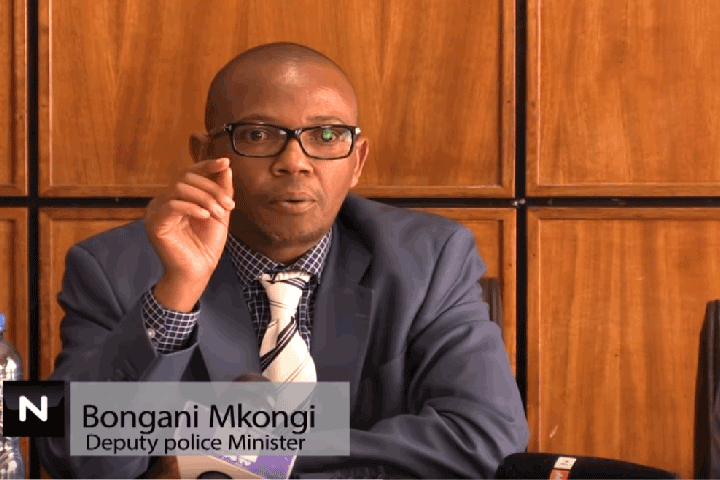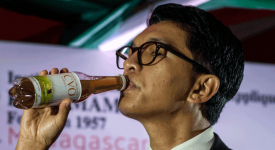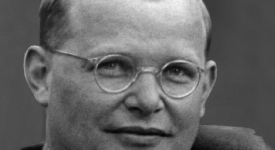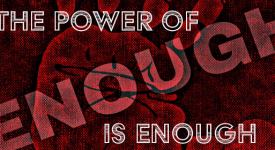Nigerians–and other black foreigners– are targets and victims of the ongoing violence in South Africa. New videos of shooting murders targeting Nigerians are surfacing, but these are not new occurrences. Incidents of South Africans attacking foreigners, especially other Africans such as Nigerians, Ghanaians, Angolans, or Zimbabweans are not new. From the look of things, however, if nothing happens to stem the tide of the desire to hurt foreigners who are blacks and in minority groups, South Africans may continue to develop unchecked propensity to otherize, scapegoat, and kill these defenseless black people in the country. Just as white racism produced an Adolf Hitler-proportion monster, so will the endroad of xenophobism bring undesired results for everyone!
Officially and unofficially, black South Africans blame black foreigners for their impoverished situations. As the emerging video clips reveal, these South Africans have the belief that Nigerians, Ghanaians, Zimbabweans or Angolans are responsible for the shortage of jobs in their communities. These South Africans assume that the arrival–or invasion, as Deputy Minister of Police in South Africa, Bongani Michael Mkongi, calls it–of other black people in the country has been the cause of their economic and political woes. The concentration of foreigners in any particular location is considered detrimental to the wellbeing of black South African citizens.
Thus, to solve the perceived problem created by the arrival of these “other” black bodies South Africans have a brilliant solution: kill them all and loot their businesses and property. This is the recommendation of South Africa’s Deputy Minister of Police, Mr. Bongani Michael Mkongi.
Mkongi’s normalization of the killing of foreigners because of what he categorizes as unwelcome “invasions” and “take over” should not go without consequences. Other African countries must ensure that he is arrested the moment he sets foot on their territory. International organizations should also be on the lookout; none of the lives lost since his statement must go unaccounted for. Black South Africans understand Mkongi’s dog whistles and have taken action: Nigerians and other black foreigners in South Africa are being killed, their businesses looted while other South Africans video tapped the drama of barbarisms. Still, others formed the cheering mob.
For Africans who live in the United States, Mkongi’s statement in a video should be very troubling.
Think about it: How about if African Americans unleash violence on black immigrants in their neighborhoods? Will it be okay if that happens? Have there not been outcries against the violence of white supremacist groups? How come a black leader in Africa endorses the killing of other Africans due to his personalized bigotry?
___________________________________
The initial problem of black South Africa has become a twin. The first and previously-only problem was apartheid–or post-apartheid frustrations. Now, xenophobic black South Africa has added another problem to their only problem: amnesia. To forget the past can be disastrous for those who truly desire to forge ahead. Whether forgetfulness of the past arrives via short memory or through the dramatization of corporate oblivion, the potential for escalation of foolery preponderates on layers of imaginative exclusion of the self.
But, how shall black South Africa be aided out of its misformed currency of hatred, if the fraught history of white incursions is avoided? How shall South Africans recognize the damage to the African SELF, if the unbeckoned histories of white jingoist Europe and America are not tabled forward? What more shall be said about Apertheid South Africa and racism? Should we forget that South African power brokers comprise whites from diverse and complex background; whites who have found a new playfield of hegemony, the shiny start of post-colonization?
Constrained by audience elasticities, black South Africa need a reminder to keep searching for the enemy by engaging in deep introspection and critical retrospection. An important work for black South Africa to consider when thinking about wealth disparity will be Thomas Piketty’s Capital in the twenty-first century. A powerful book which many back South Africans will find helpful, because in it:
Piketty derives a grand theory of capital and inequality. As a general rule wealth grows faster than economic output, he explains, a concept he captures in the expression r > g (where r is the rate of return to wealth and g is the economic growth rate). Other things being equal, faster economic growth will diminish the importance of wealth in a society, whereas slower growth will increase it (and demographic change that slows global growth will make capital more dominant). But there are no natural forces pushing against the steady concentration of wealth. Only a burst of rapid growth (from technological progress or rising population) or government intervention can be counted on to keep economies from returning to the “patrimonial capitalism” that worried Karl Marx. Piketty closes the book by recommending that governments step in now, by adopting a global tax on wealth, to prevent soaring inequality contributing to economic or political instability down the road.
Not that Piketty’s Capital renders protest matches useless, but anger is better framed, channeled once the cause of a problem is finally and properly recognized. Put frankly, the killing of foreigners because they are black and doing better than you in your own country is shameful, disgraceful, and a display of avoidable and curable ignorance. But the killing of Nigerians, in particular, shows the degraded level of both South African and Nigerian leadership. In Nigeria the economy is in the hands of a ruler whose pasttime has become chasing of shadows. Under Buhari’s watch Nigerians have become objects of fantastic fatality. Under South Africa’s leadership, black South Africans bite the fingers that once fed their liberation and freedom.
With war-like-scene video clips emerging of South Africans slaughtering foreigners and Nigerians topping the hate hit list, Nigeria’s ruler, the military-tuned-mufti wearer, Mohammadu Buhari, a retired General, keeps mute. Surprisingly, there is also silence from the major “progressive” media outlets who would normally cry out “white supremacist.” The loudest of all the silences is the silence of major spiritual solutions enterprises, in Nigeria and South Africa.
That in 2019 South Africa’s xenophobism and Nigeria’s absentee leadership leaves an urgent space for Afrocentric countries such as Ghana to assume leadership roles can no longer be contested. These surreal events compare to those in Hollywood scenes–not to be taken as real. Yet, they are as real as real can be!
___________
Finally, unlike the shattering noise that greeted President Trump’s suggestion that people from shit-hole countries are invading the United States of America, the silence of CNN, Buhari, and the centers of spiritual solutions across the Atlantics is reminiscent of the silence that gripped Hitler’s Germany on that day when Dietrich Bonhoeffer’s provocative national broadcast that targeted and lampooned the Führer got shut down. However, while America’s Trump conveniently told the truth about shitholed countries, it is yet to be heard from him–or any other westerner–that Hitler’s Germany was a serious shithole! Nor has it been told that the shithole of Germany under Nazi Führer was the direct descendant of racism and white supremacist ideologies.
Consequently, the strategic silence of western media over the ongoing xenophobia of black South Africa tacitly acquiesces with Trump’s shitshole statement. Of significance therefore is the remasteredand, coloful hypocricy of progressive media practitioners in the west, particularly, in the United States. American media outlets are busy feeding America’s with Donald Trump’s golfing schedules.After all, the bullshits from black Africans in Africa is no business of the west. Who cares about a black life? What is black life worth?
Herding a Shit-Hole Country
In recent video clips from Nigeria policemen are seen shooting sporadically at protesters who took to the streets to say they no longer want South Africans or their businesses in Nigeria. One commentator in a video said he saw police gun down and kill a protester. In another video president John Mahama of Ghana makes the case for African unity, reminding South Africans about the role which other Africans played towards the successful dismantling of white apartheid rule in their country. Nigeria’s Buhari nods in the background.
Police men in Nigeria seldom appear whenever banditry is in session. Policemen are nowhere to be found when Buhari’s Fulani clansmen herdsmen terrorize lives and property. It is ironic that Nigerian policemen are seen within close proximity of the retarliatory protest sites.
South Africans know that Nigeria does not have a leader who cares about people outside of his immediate tribe–or party. As one of Buhari’s party leaders stated any criminal who has the guts to join Buhari’s party becomes a saint overnight.
Supporting References
Julian Rademeyer, “Do 400,000 whites live in squatter camps in South Africa? No,” in Africa Check, 22 May 2013, http://africacheck.org/reports/do-400-000-whites-live-in-squatter-camps-in-south-africa-the-answer-is-no (accessed September 4, 2019).
The Economist, Thomas Piketty’s “‘Capital’, summarised in four paragraphs: A very brief summary of ‘Capital in the Twenty-First Century,'” May 5, 2014, https://www.economist.com/the-economist-explains/2014/05/04/thomas-pikettys-capital-summarised-in-four-paragraphs Aaccessed September 4, 2019).
Thomas Piketty, Capital in the twenty-first century (Cambridge: The Belknap Press of Harvard University Press, 2014).
We Elections, “Race, Ethnicity and Language in South Africa,” https://welections.wordpress.com/guide-to-the-2014-south-african-election/race-ethnicity-and-language-in-south-africa (accessed September 4, 2019).








